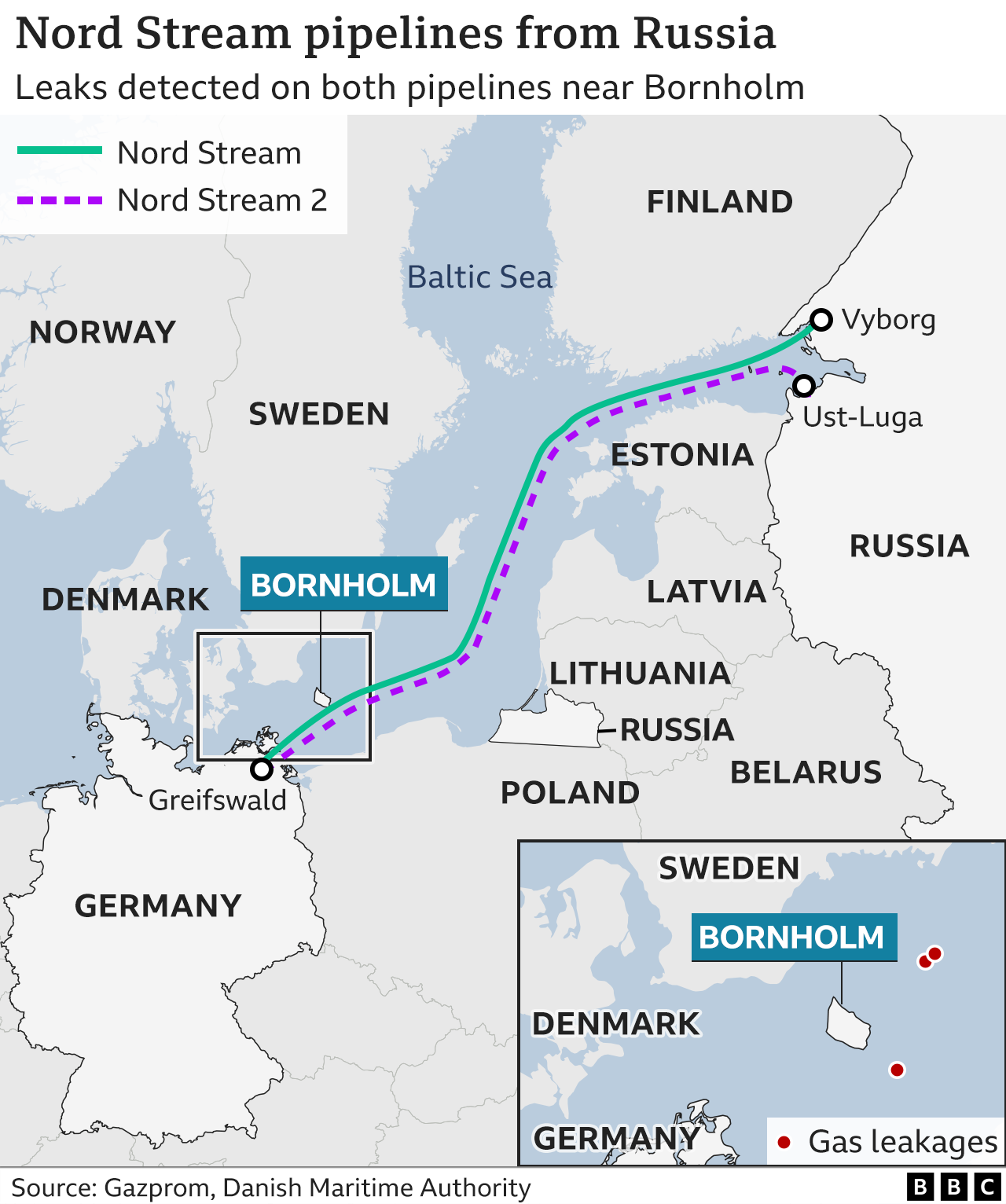Moscow/Brussels - Nord Stream 1 and 2 gas pipeline leaks took the center stage on Thursday in the ongoing tussle between Russia and EU over the Ukraine invasion. Both parties laying blame on each other for the leak calling it a ‘sabotage’.
Four days after the leaks were first spotted, it remains unclear who might be behind any attack on the pipelines that Russia and European partners spent billions of dollars building.

Russia said on Thursday that leaks spewing gas into the Baltic Sea from pipelines to Germany appeared to be the result of state-sponsored "terrorism", as an EU official said the incident had fundamentally changed the nature of the conflict in Ukraine.
"This looks like an act of terrorism, possibly on a state level," Kremlin spokesman Dmitry Peskov said, adding: "It is very difficult to imagine that such an act of a terrorism could have happened without the involvement of a state of some kind".
Russia also said the United States stood to benefit, in a war of words with the West over who was responsible. Moscow has previously said the leaks occurred in territory that is "fully under the control" of U.S. intelligence agencies.
But U.S. news channel CNN, citing three sources, reported that European security officials had observed Russian navy support ships and submarines not far from the leaks.
The White House has dismissed Russian allegations that it was responsible for the damage to Nord Stream and Biden's comments were referring to efforts at the time to secure certification to bring Nord Stream 2 into commercial use.
The European Union is investigating the cause of the leaks in the Gazprom-led Nord Stream 1 and 2 pipelines and has said it suspects sabotage was behind the damage off the coasts of Denmark and Sweden.
"This changes fundamentally the nature of the conflict as we have seen it so far, just like the mobilisation ... and the possible annexation," the EU official said, referring to Russia's mobilising of more troops for the war and expectations President Vladimir Putin will annex Ukrainian regions.
The European Union on Wednesday warned of a "robust and united response" should there be more attacks and stressed the need to protect its energy infrastructure, but EU officials have avoided pointing a figure directly at possible perpetrators.
Next week, EU leaders will discuss an eighth sanctions package on Russia which European Commission chief Ursula von der Leyen has proposed, including tighter trade restrictions, more blacklistings and an oil price cap for third countries.
The EU official said he expected the 27-nation bloc to agree parts of the sanctions package before the summit, such as the blacklisting of additional individuals and some of the trade restrictions with regard to steel and technology.
Leaks from the Nord Stream 1 pipeline are likely to be stopped on Monday, the pipeline's operator told Reuters. The spokesperson for Nord Stream AG said it was not possible to give any forecasts for the pipeline's future operation until the damage had been assessed.
-Reuters